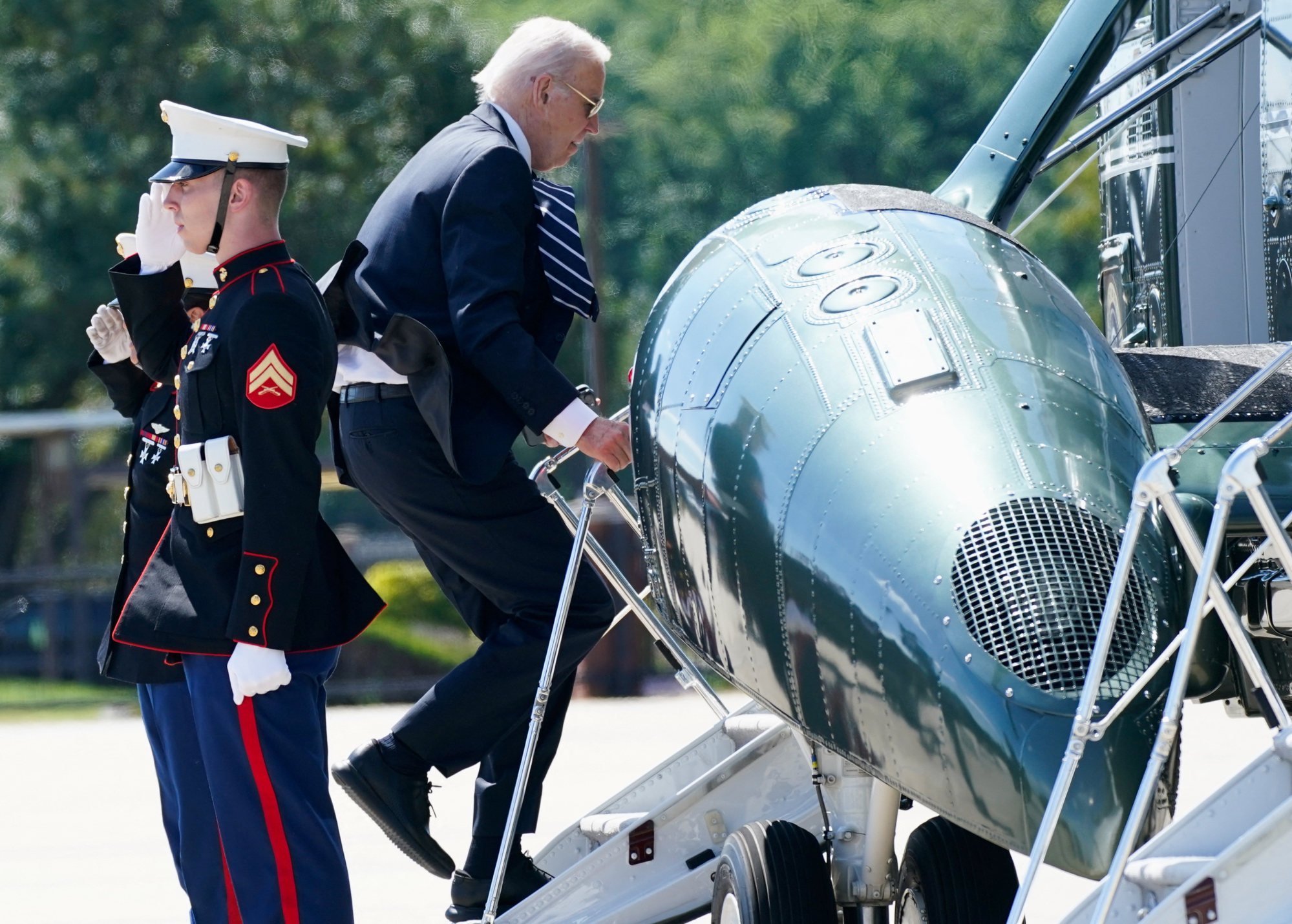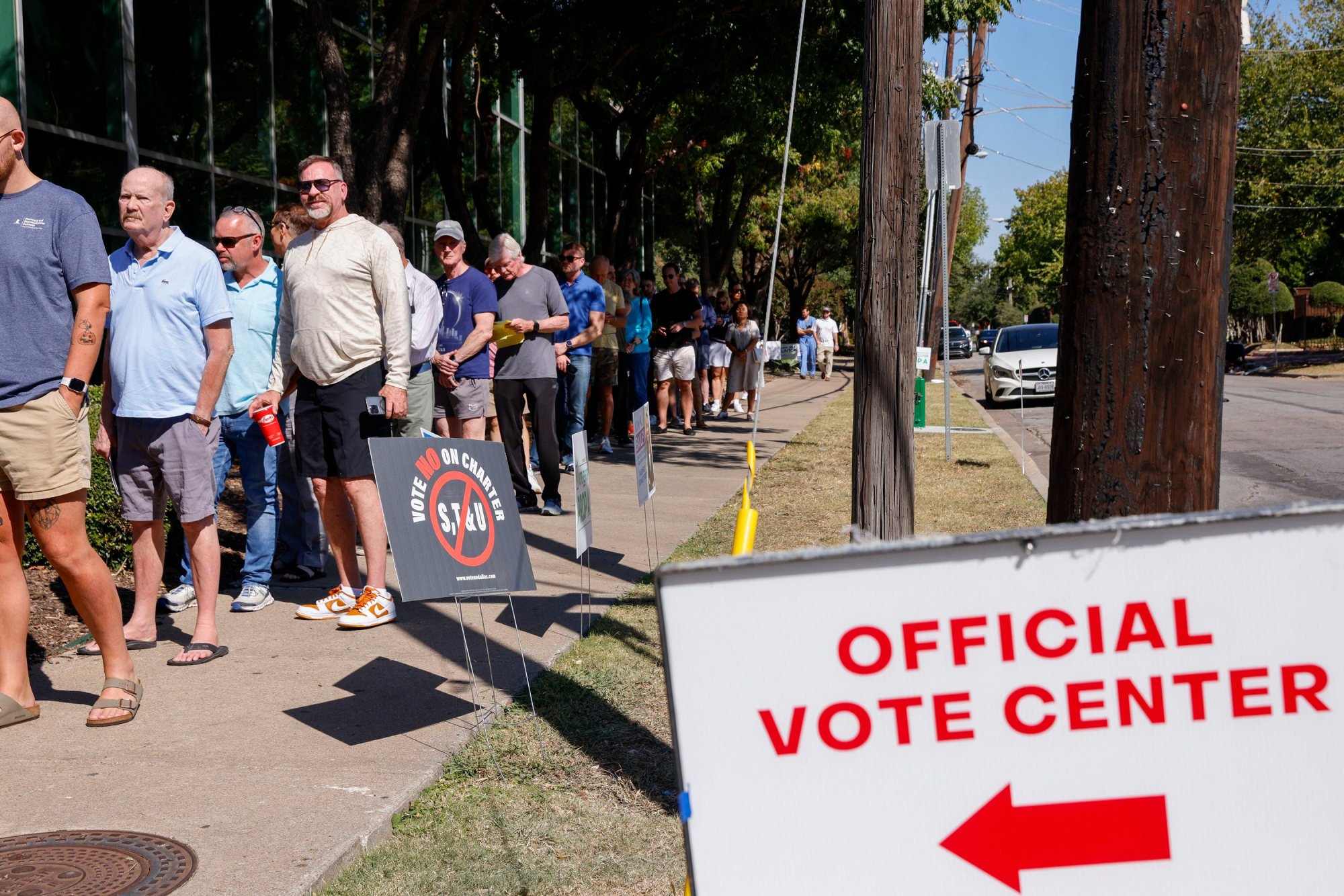A mere 30 per cent of the American public believe trade with China has created “some or a lot of jobs” in their state, a new study revealed in the lead-up to the US election.
The East-West Centre, a Washington-based research organisation, found in a survey that a slight majority of the American public – more than 55 per cent – did not know the impacts on job creation of trading with Asia in general or with China in particular.
Respondents who were categorised as members of the US general public were also less worried than stateside political and business elites about the country losing its trade competitiveness to China.
Do you have questions about the biggest topics and trends from around the world? Get the answers with SCMP Knowledge, our new platform of curated content with explainers, FAQs, analyses and infographics brought to you by our award-winning team.
Only 36 per cent of these respondents said they were “moderately or extremely concerned” compared to more than half of the surveyed political and business elites who felt that way.
The report polled about 1,000 people in January and February this year from the American general public and another 1,000 political officials and business leaders on their perceptions towards US engagement with Asia, such as trade with China.
America’s economic engagement with China has frequently been spotlighted in the 2024 presidential race.
Former US president and Republican standard-bearer Donald Trump has floated the idea of imposing a 60 per cent tariff on Chinese goods as well as a universal duty on all American imports. He has argued these moves would create more jobs stateside.
US Election Day is November 5, and early voting is under way. Trump and US Vice-President Kamala Harris are locked in a tight contest to succeed US President Joe Biden, who defeated Trump in 2020 and opted not to seek re-election.
Trump as president started a trade war with China in 2018, imposing tariffs on more than US$300 billion worth of mainland goods.
Biden has mostly kept the tariffs in place and even expanded them to apply to semiconductors and clean-energy products amid an all-round competition between the world’s two biggest economies.
Harris, who has revealed little of her trade policy plans, is largely expected to continue Biden’s stances.

Laura Silver of Pew Research Centre, a non-partisan Washington-based think tank, said American opinions tended to follow the leader they trusted on complicated issues and would “likely be guided” by the foreign policy of “whoever is in office next”.
“Most Americans have a zero-sum notion of trade,” Silver explained. “For example, if you ask Americans whether or not we benefit more than other countries, they often see other countries benefiting more than we do and that’s particularly the case when it comes to China.”
“In fact, there’re some relatively solid evidence that Americans would rather not create any jobs in the United States if it means more jobs are created in a country that Americans don’t like,” she added. “So even if we get one, if they get two, that’s seen as losing, which is obviously completely counter to what we would think as economists.”
In the survey, only a quarter of the American public deemed trade with Asia as “very or extremely beneficial”.
At the same time, it found that 55 per cent of political and business elites supported entering into a critical-minerals agreement with Asian countries and 54 per cent backed investing in Asia’s clean-energy transition.
To boost US efforts to become less dependent on China, the Biden administration created a Minerals Security Network with 13 countries and the European Union.

The mainland owns about 60 per cent of the world’s rare earth minerals, a critical component of semiconductor manufacturing.
For its part, the US has doubled down on staying competitive in clean-energy products by subsidising billions of dollars in its domestic EV industry.
Trump opposes Biden’s renewable-energy initiatives, having suggested an end to tax credits for electric-vehicle purchases. He has also threatened to impose tariffs of up to 200 per cent on Chinese EVs if re-elected.
Amid these developments, many in Asia are uneasy with America’s greater willingness to embrace protectionism and feel pressure about having to choose between siding with Washington or Beijing, according to another East-West Centre report on Tuesday.
The Indo-Pacific has become a focal point in the Sino-American rivalry as the two vie for economic and military influence in the strategically important region.
Yet the East-West Centre survey showed that 66 per cent of the US general public preferred keeping America’s military presence in Asia at the same level as it is now. In contrast, 42 per cent of the elites wanted to increase troop levels in the continent.
More from South China Morning Post:
- China outlook murky for executives as companies plan for Trump tariff blitz
- US election: Kamala Harris urges voters to beware of Trump’s desire for unchecked power
- The 7 states that will decide the US presidency
- China’s critical mineral dominance puts Washington’s supply chain hopes at risk
- Could US-China military ties endure the turbulence of another Trump presidency?
For the latest news from the South China Morning Post download our mobile app. Copyright 2024.





